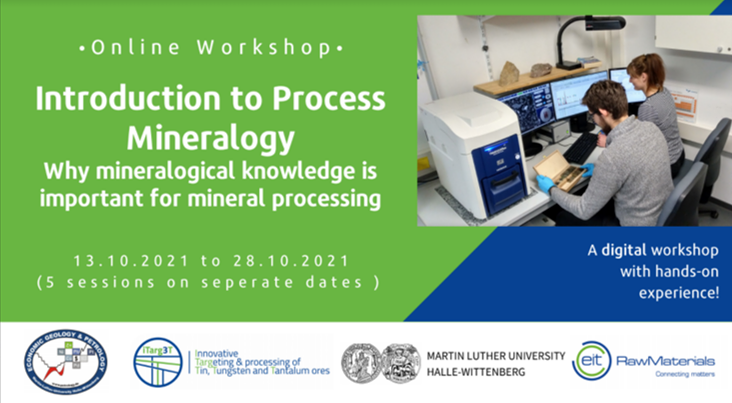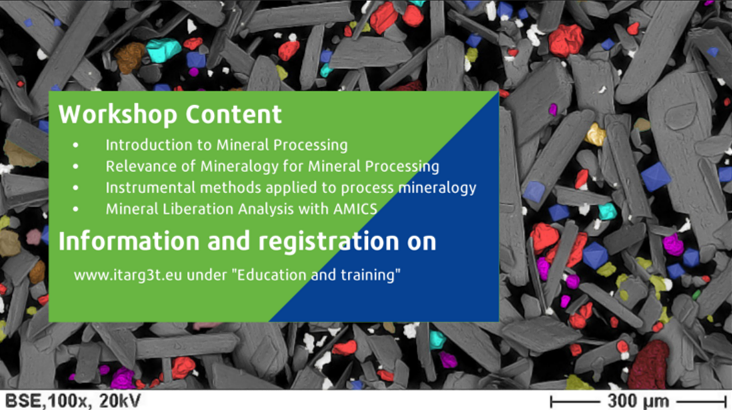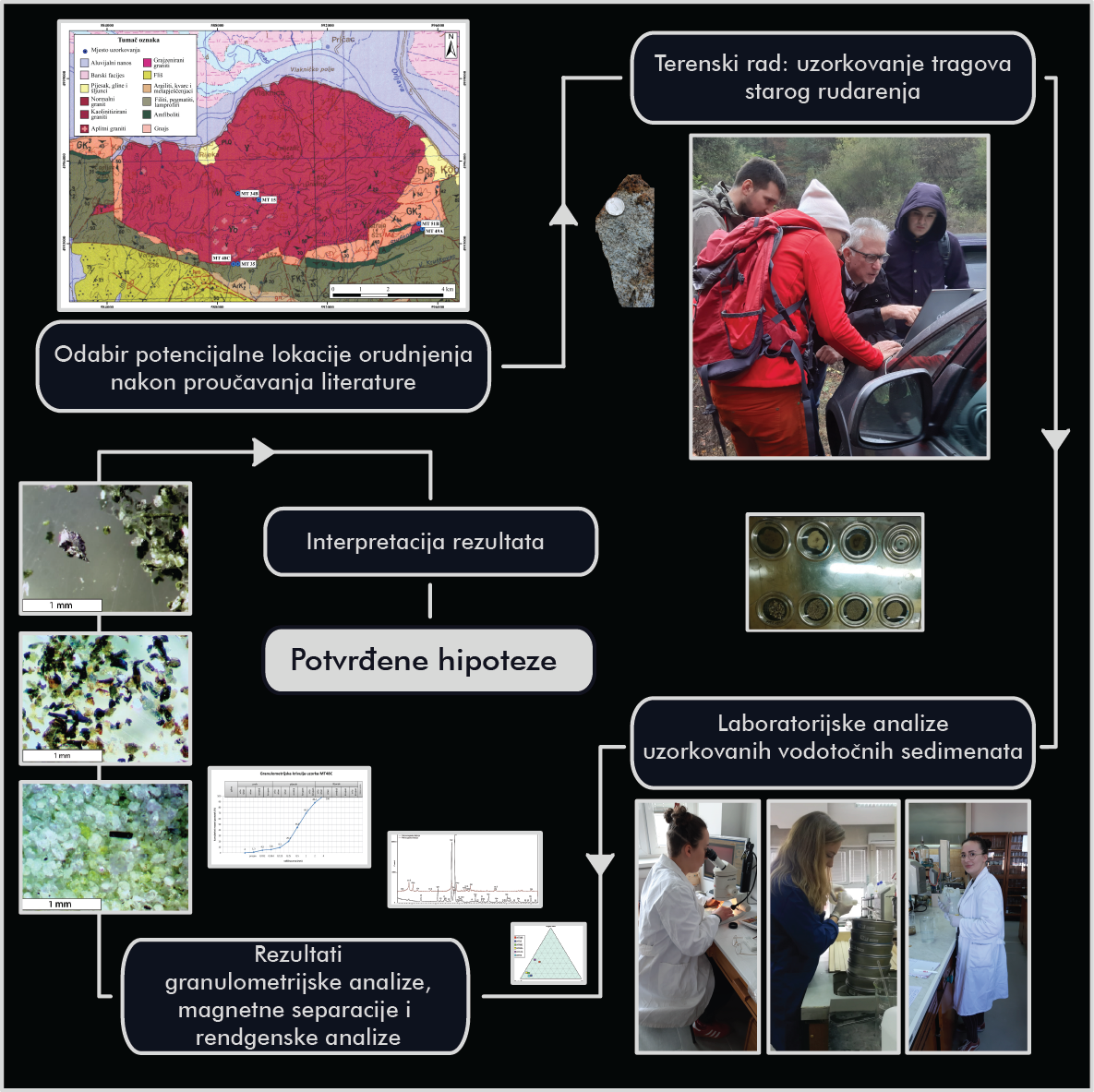



The short course “Introduction to Process Mineralogy” is organised by the Martin Luther University Halle-Wittenberg and takes place online. It provides an overview about the importance of mineralogy for mineral processing and addresses undergraduate and graduate geosciences students with no or limited knowledge in the field of process mineralogy.
The course takes place on several different days and is free of charge.
13.10.2021 Icebreaker Meeting; evening
A virtual get-together during the evening. We would like to explain the content and procedure of the course as well as getting to know each other. It would be nice if each participant could very briefly introduce oneself to the group. Please bring your own snacks and drinks 😊.
14.10.2021 Session 1; afternoon (4h)
The first session consists of an introduction in mineral processing and why mineralogical knowledge is important for the successful and sustainable recovery of commodity minerals. We alert the group that the chemical analysis of an element in an ore or rock does not necessarily allow for the successful and economically viable extraction of this element or metal, depending on numerous mineralogical parameters. Depending on the previous knowledge of the group we will do a short introduction in the (reflected) light microscopy and how it can fundamentally support our aims in process mineralogy.
14.10.2021 - 21.10.2021 Assignment
We will provide you with some thin and polished sections beforehand, sent by mail. You will apply your new knowledge and prepare a short presentation about your samples for the next session.
21.10.2021 Session 2; afternoon (4h)
You will present your results and we discuss positive and negative aspects of light microscopy in process mineralogy. We will show you other methods, their limitations, and potential sources of error. At the end you will receive a more detailed introduction to scanning electron microscopy and the software AMICS for automated mineralogy.
22.10.2021 Remote lab work in small groups (all day, each group 2h)
You can work directly with our scanning electron microscope via remote access and we will go further into detail, compared to session 2. You will create your own database and collect data for the next assignment.
22.10.2021 - 28.10.2021 Assignment
You will work with the collected data, do a mineral liberation analysis, and prepare a short presentation of your results.
28.10.2021 Session 3; afternoon (2h)
You will present your results and together we will discuss the outcome.
At the end of the course we will present you a case study in more detail.
Participants should have first experience with transmitted and reflected light microscopy and have access to a microscope – in best case you are able to take digital pictures – for your assignments. Additionally, a PC or laptop with microphone and camera for the online sessions is mandatory. Please send your application to lukas.iwan@geo.uni-halle.de and provide information about your name, institution, place, and type of work/study (which year of study), your experience with SEM-EDX and automated mineralogy as well as your expectations for the course.
Application is open until 27 June 2021 (23:59 CEST). The number of participants is limited to 9 persons only and the selected participants will be contacted by 30 June 2021. If we receive more than 9 applications, the selection process is based on the knowledge of the participants, which suits the course content the best and makes a balanced group regarding know-how, gender, and geographic location.

Ana and Lucia´s work is part of the iTarg3t project. In it they present a mineralogical analysis of the sediments of the watercourse of the Motajica area in Bosnia and Herzegovina. Granulometric analysis by sieving, magnetic separation method and XRD analysis were performed on sediments extracted from streams that exclusively drain the igneous part of the complex and on those extracted from streams that drain the igneous and metamorphic part of the complex. Based on these analyzes, the presence of the main characteristic minerals of the granites and those of the surrounding metamorphic formations was demonstrated. The analyzes confirm that the watercourse sediments reflect the geological structure of the investigated terrain and indicate subsequent Graisen and hydrothermal changes.
Copyright © 2021 iTarg3T